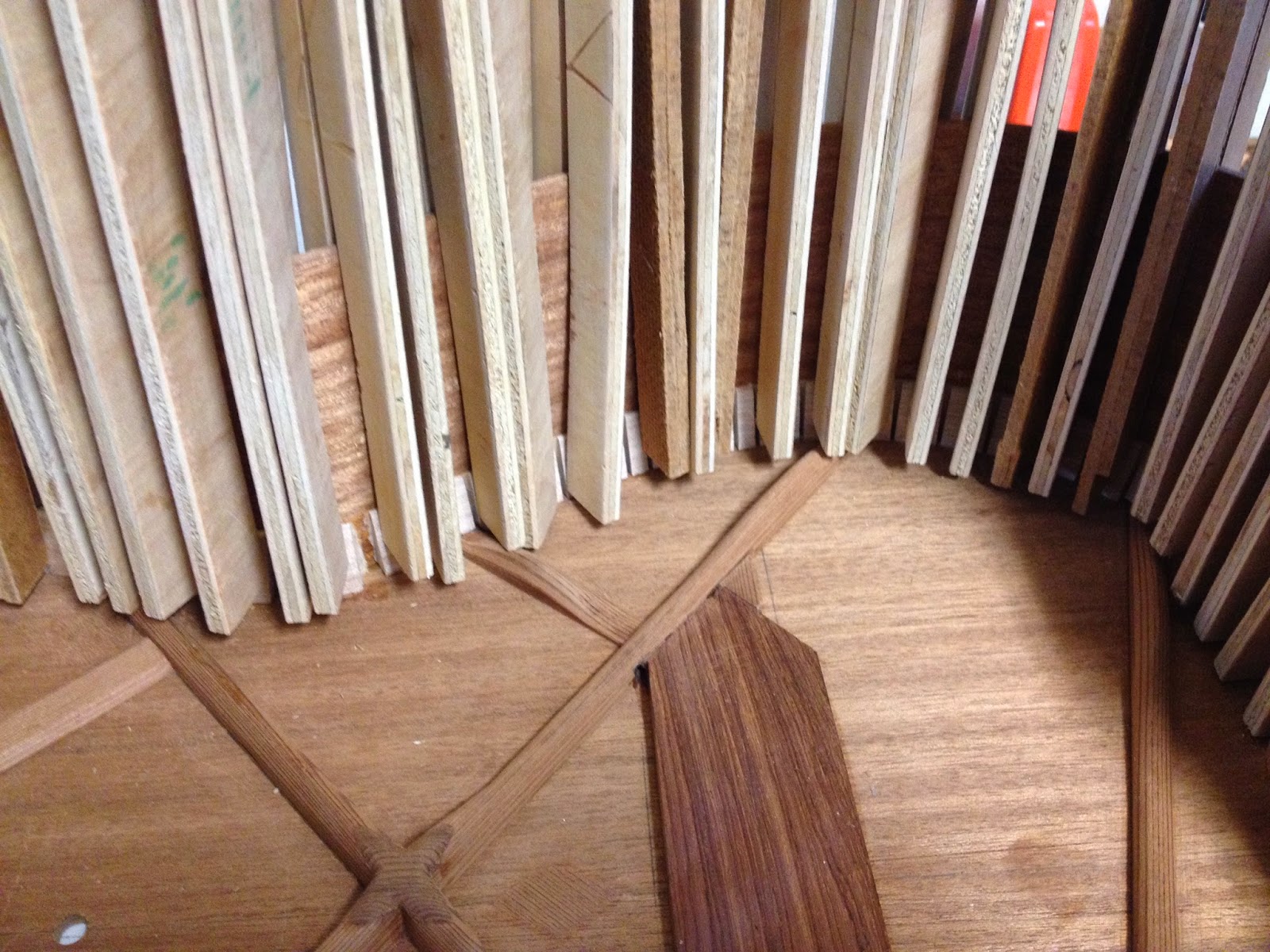Friday, November 3, 2023
Thursday, January 11, 2018
Millennium Falcon Bass - The Force Awakens #12

This bass was fabricated from an Ibanez Iceman ICB200 Bass and The Force Awakens Battle Action Millennium Falcon by Hasbro.
The Ibanez bass has some good reviews, so I thought it was a good starting point. You can read more about the bass from Guitar Center and from Musician's Friend.
The Hasbro Falcon had dimensions I could work with so it made it the prime toy to chop up...
Enjoy the construction pics...
Saturday, November 25, 2017
Diploma Picture Frame
How to Build a Diploma Picture Frame
Steps
1) Choose wood
2) Cut wood
3) Arrange wood pieces
4) Trim wood pieces
5) Attach wood pieces
6) Add finish to wood
7) Add glass and backboard
8) Add diploma
Choose a piece of wood for your diploma picture frame. I choose Western Red Cedar because that is what I had lying around my workshop.
Step 2: Cut Wood
Next, cut wood into 4 equal sections.
Step 3: Arrange wood pieces
After the wood pieces are cut into equal lengths, arrange them how you would like the finished project to look.
Step 4: Trim wood pieces
Shave the pieces of wood so they are flat on all edges and make a groove on the back edge to hold the plexiglass and backboard.
Step 5: Attach wood pieces
Step 6: Add finish to wood
Step 7: Add backboard and plexiglass
Monday, March 6, 2017
Friday, June 20, 2014
Trimming the excess off the top and back
I use a combination of rasps to clean up the excess material off the top and back.
Here are different views.....
...the back...
...the top...
I start shaving the back then work on the top. First, mask off the sides so any slips aren't as painful as they could be with out masking tape.
Masked off and trimmed...
Tape removed and ready to cut the sound hole.
I used a circle cutter for the sound hole.
Next up..... Glue frets to fret board and glue fret board to neck.
Here are different views.....
...the back...
...the top...
I start shaving the back then work on the top. First, mask off the sides so any slips aren't as painful as they could be with out masking tape.
Masked off and trimmed...
Tape removed and ready to cut the sound hole.
I used a circle cutter for the sound hole.
Next up..... Glue frets to fret board and glue fret board to neck.
Friday, June 13, 2014
Attaching back to "box up" the tenor guitar
Just a refresher on the kerfing....
Once the bottom kerfing is measured and dry fit....
... it is glued and clamped.
I notched out a section in the kerfing so the bracing stretches and touches the sides.
The top kerfing is clamped with clothes pins....
... and other small clamps.
Once the glue dries, I level the kerfing with the sides.
A long "flat" sanding block helps keep the sanding even across the width and provides leverage on each side.
Here's a shot of the kerfing level with the top of the sides.
Note: With the taper of the sides there was a divot at both ends of the tenor guitar, so I had to pay extra attention to leveling these sections so it blended evenly with the rest of the side profile.
Once the kerfing was leveled, the back was dry fit and instead of notching the kerfing where the back braces met the sides, I just cut the braces.
A small amount of glue around the top....
...clamped with spool clamps....
... and a handy tool for glue squeeze out is a straw....
... this makes trimming the over hang of the top and back much easier.
Next up... trim the top and back overhang and cut the sound hole.....
Once the bottom kerfing is measured and dry fit....
... it is glued and clamped.
I notched out a section in the kerfing so the bracing stretches and touches the sides.
The top kerfing is clamped with clothes pins....
... and other small clamps.
Once the glue dries, I level the kerfing with the sides.
A long "flat" sanding block helps keep the sanding even across the width and provides leverage on each side.
Here's a shot of the kerfing level with the top of the sides.
Note: With the taper of the sides there was a divot at both ends of the tenor guitar, so I had to pay extra attention to leveling these sections so it blended evenly with the rest of the side profile.
Once the kerfing was leveled, the back was dry fit and instead of notching the kerfing where the back braces met the sides, I just cut the braces.
A small amount of glue around the top....
...clamped with spool clamps....
... and a handy tool for glue squeeze out is a straw....
... this makes trimming the over hang of the top and back much easier.
Next up... trim the top and back overhang and cut the sound hole.....
Subscribe to:
Comments (Atom)














































